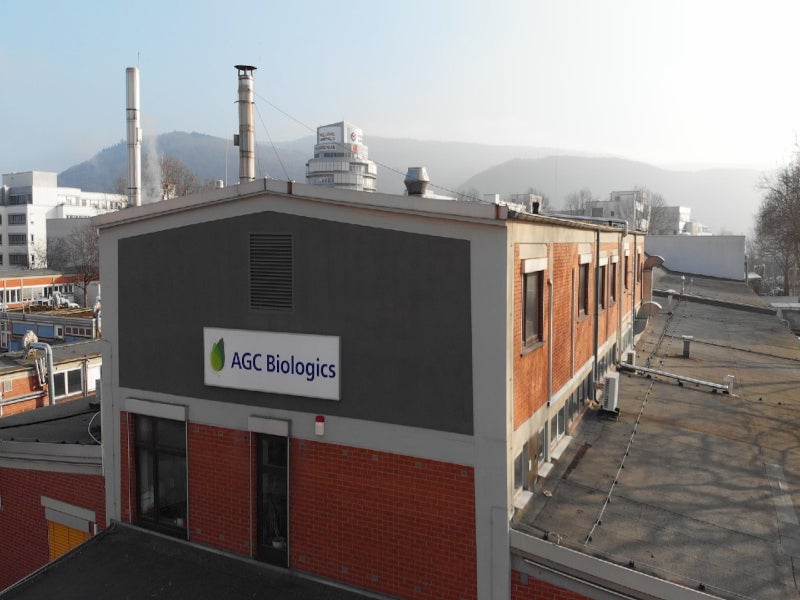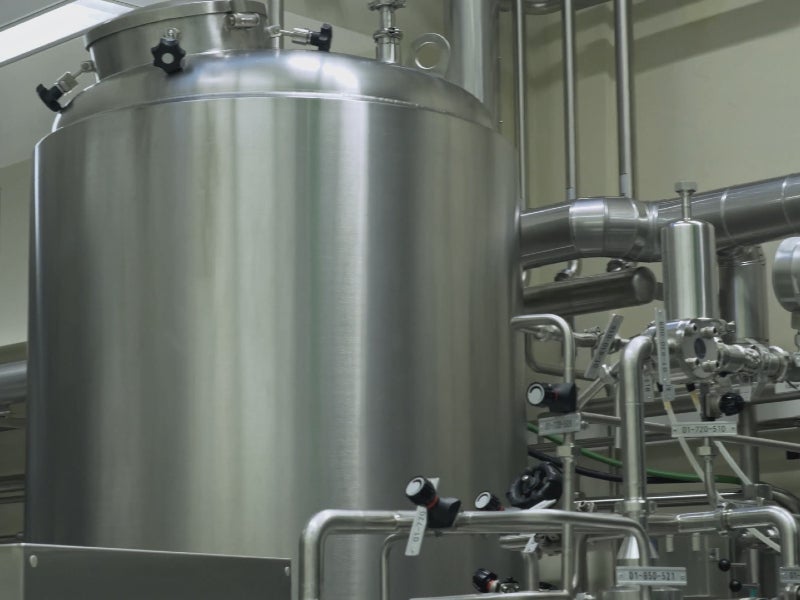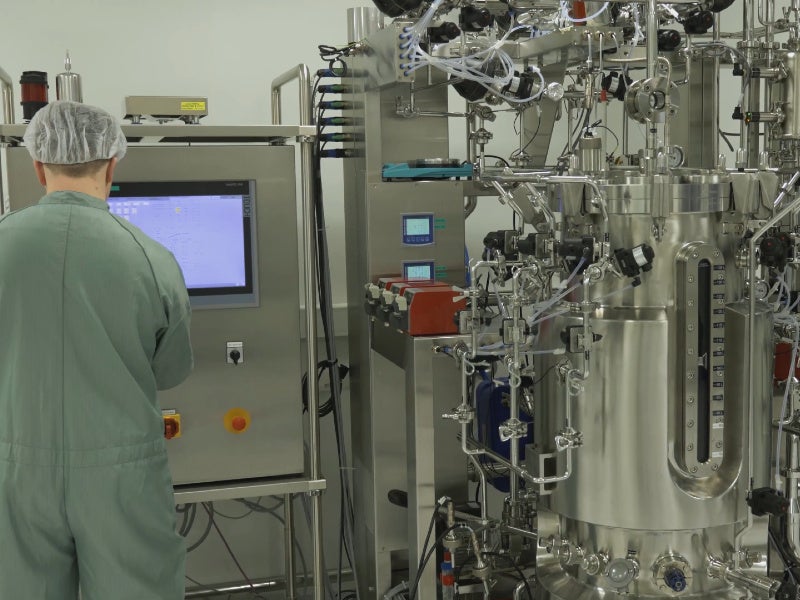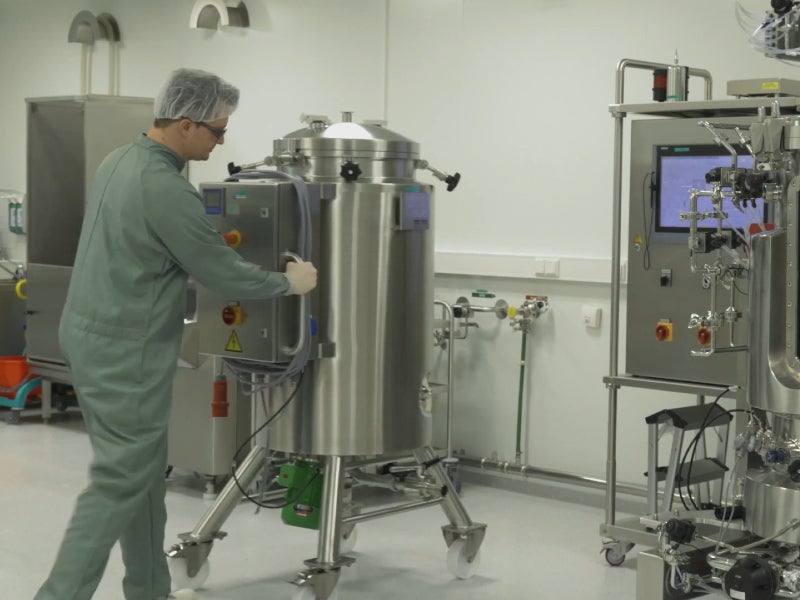AGC Biologics (AGC), a contract development and manufacturing organisation (CDMO) based in the US, has expanded its facility in Heidelberg, Germany, to increase its plasmid DNA (pDNA) and messenger RNA (mRNA) manufacturing capabilities.
Announced in September 2021, the expansion was completed in October 2023.
The expansion enables the facility to develop high-throughput techniques and quality-by-design processes, in addition to expanding the company’s service portfolio.
AGC Biologics’ manufacturing facility location
The facility is located at Czernyring 22, Heidelberg, Germany. It was added with state-of-the-art equipment, additional space and staff during the expansion.
AGC Biologics’ manufacturing facility expansion details
The facility was expanded with a new production line for process development and manufacturing of pDNA and mRNA, supporting the production in 10l and 50l scale for pDNA and new projects for mRNA development.
The new production line incorporates a state-of-the-art single-use bioreactor, improved workforce and material flow, chromatography, laminar flow and API filling.
New good manufacturing practice (GMP) cleanrooms were added for fermentation, as well as an additional warehouse space was included to manage incoming material.
The expansion features the integration of independently operated production units for upstream and downstream pDNA processing, linearisation, mRNA production and a filling unit, ensuring compliance, quality, and flexibility for every project.
The Heidelberg facility currently provides full-scale assistance for microbial drug substances, plasmid materials, preliminary material for in vitro transcription mRNA vaccines, and raw material for adeno-associated vectors (AAV) and lentiviral vectors (LVV).
Benefits of AGC Biologics’ Heidelberg facility expansion
mRNA is a drug modality being extensively used in the development of Covid-19 vaccines. Its global demand is expected to increase both for vaccines and other applications.
The expansion fortifies the facility’s existing pDNA capabilities, while supporting AGC’s entry into mRNA space, to cater to the requirements of therapeutics developers.
The investment helps AGC to leverage its experience and technology in pDNA capabilities for the development and production of mRNA and cell and gene therapy (C>) products to meet the growing demand in global markets.
With the integration of state-of-the-art single-use equipment, the Heidelberg facility offers flexibility to produce diverse projects in a shorter duration, resulting in faster project turnover to meet the developers’ requirement for pDNA and mRNA materials.
Existing capabilities of the Heidelberg facility
The Heidelberg facility is AGC’s centre of excellence for pDNA production as part of its end-to-end C> offering. It offers microbial manufacturing services, microbial fermentation capacity and mRNA and pDNA production capabilities. It has been delivering a range of microbial programmes for more than two decades.
Designed to have a unidirectional flow for capacity and technological flexibility, the facility complies with current guidelines for cGMP compliance. It operates several cGMP manufacturing lines across a variety of scales. It is equipped with stainless-steel fermenters with working volumes ranging from 10l to 4,500l and a segregated lab with 10l glass fermenters and downstream equipment for plasma pDNA production.
The manufacturing facility has continuous centrifugation harvest, quality control release and stability testing methods to ensure high quality. It accommodates microbial cell banking and storage for master cell banks and working cell banks, with production, characterisation and storage equipment. Its microbial manufacturing capabilities include the production of therapeutic proteins, secreted proteins and DNA plasmids.
The mammalian manufacturing capabilities include 3,000l and 20,000l stainless steel bioreactors along with 100l, 500l and 2,000l single-use bioreactors. Its mammalian perfusion capabilities include 500l of a single-use bioreactor with a perfusion capacity of up to 1,000l/day.
Marketing commentary on AGC Biologics
AGC Biologics is a CDMO that develops and manufactures mammalian and microbial-based therapeutic proteins, pDNA, viral vectors and genetically engineered cells.
With facilities in the US, Europe and Japan, the company offers unique solutions to its clients, including cell line development, bioprocess development, formulation, analytical testing, antibody-drug development and conjugation, cell banking and storage and protein expression.
In July 2021, AGC collaborated with Pfizer-BioNTech to manufacture and supply pDNA, the starting material for the Pfizer-BioNTech Covid-19 vaccine Comirnaty®, from its Heidelberg facility.
The company has manufactured more than 200 biological projects at its cGMP manufacturing facilities across a variety of scales. AGC Biologics employs more than 2,500 people worldwide.






